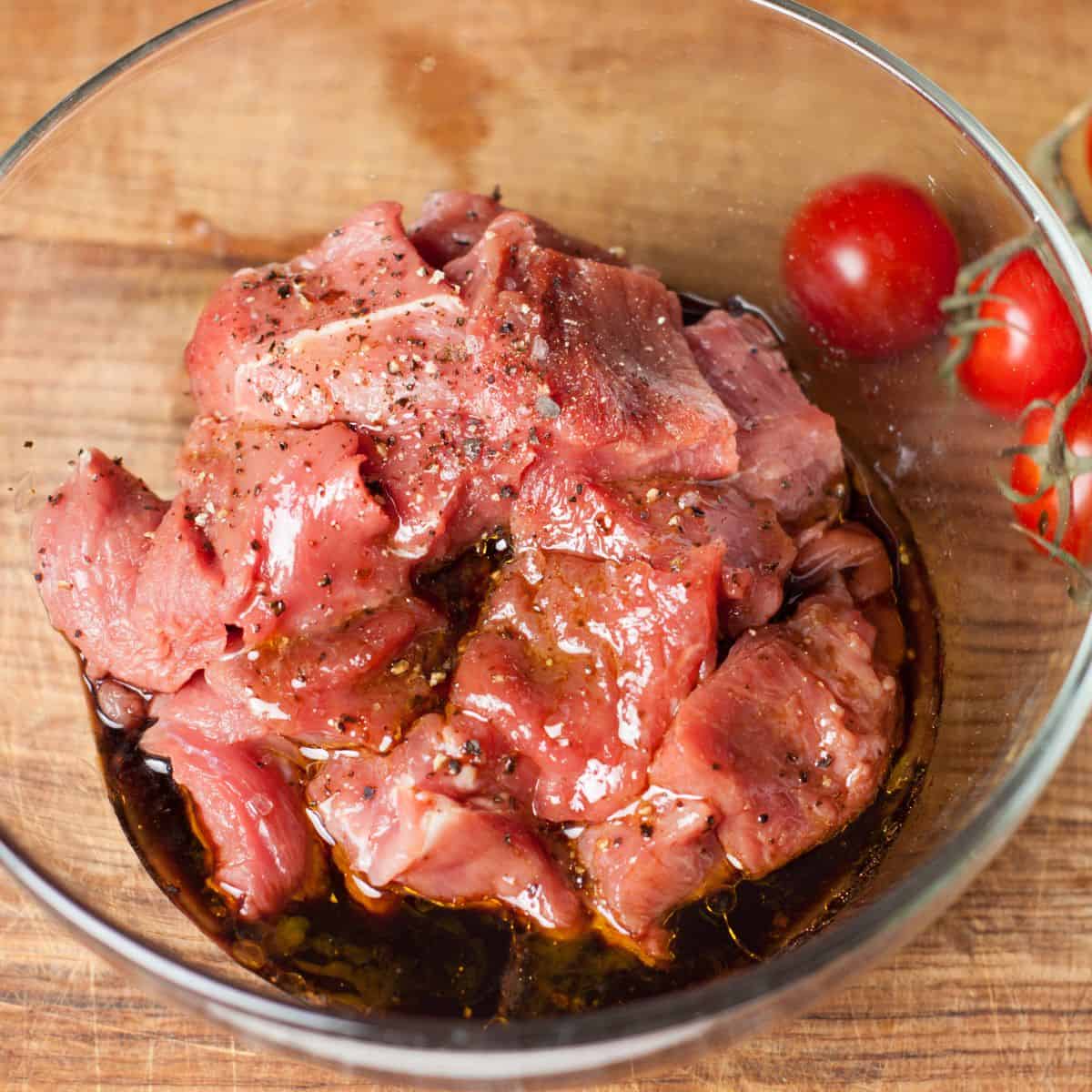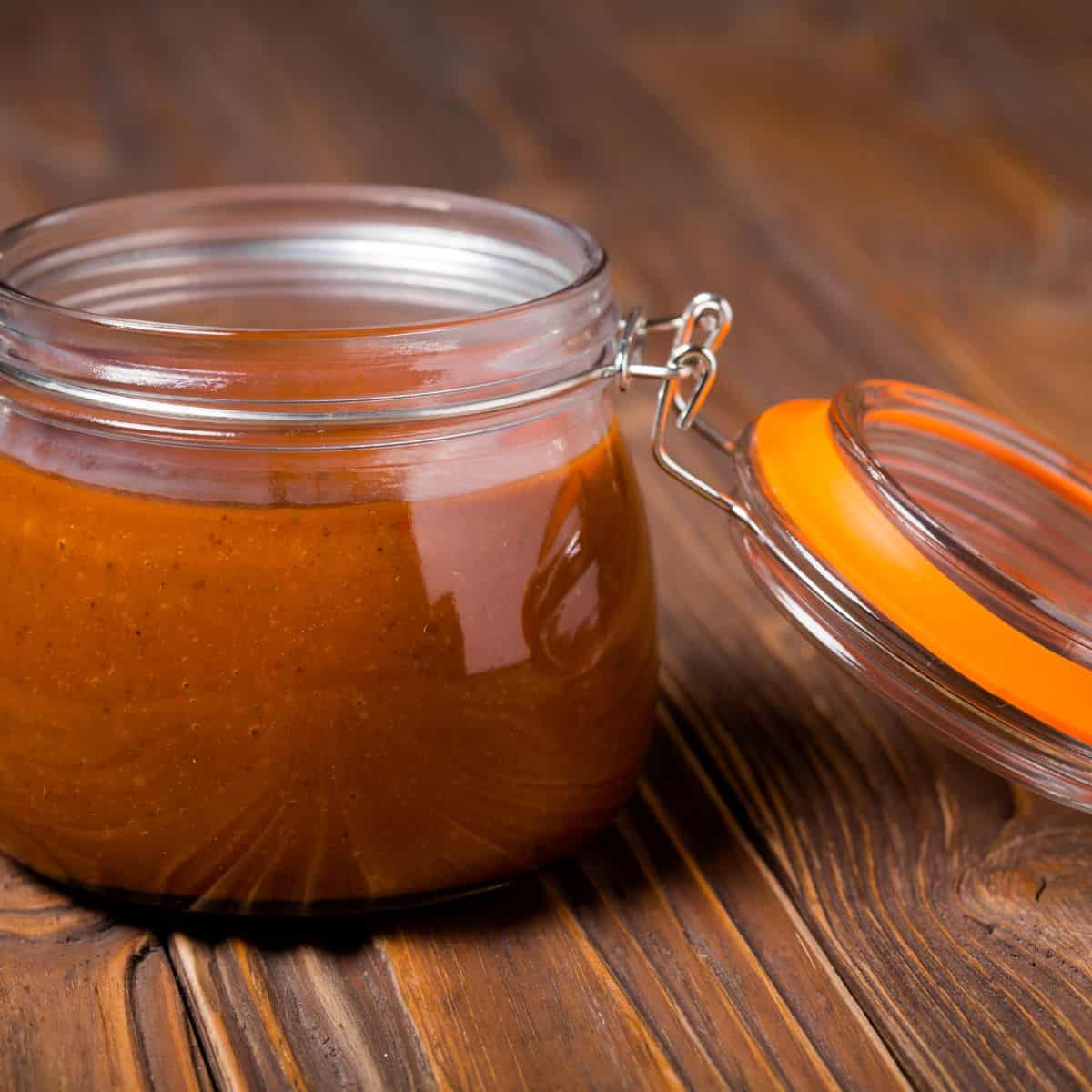Marinating meat is a fantastic way to enhance its flavor and tenderize it before cooking. Whether you're preparing a succulent steak or marinating beef for a delicious stir-fry, understanding how long marinated beef can stay in the fridge is crucial for both food safety and achieving the best results.
In this blog, we will explore the factors that affect the refrigerated shelf life of marinated beef and provide some essential tips to keep your marinated meat safe and flavorsome.
Check out my marinade recipe in this blog and let me know how you like it. And if you like fried rice, be sure to check out my recipe using leftover marinated steak.
Jump to:
- Marinating Time and Room Temperature
- Refrigerated Shelf Life and Safety
- Acidic Marinades and Food Safety
- Storing Marinated Beef
- Freezing Marinated Beef
- Safe Thawing and Using Leftover Marinade
- How to Tell if Marinated Beef Has Gone Bad
- How-To Instructions
- Marinated Recipes You May Like
- More How To Recipes
- 💬 Reviews
Marinating Time and Room Temperature
When marinating beef, it's important to allow enough time for the flavors to penetrate the meat fully. The marinating time depends on several factors, including the type of meat, the size of the cuts, and personal preference. Most recipes recommend marinating beef for at least 30 minutes to a maximum of 24 hours. Shorter marinating times are suitable for thin cuts of meat, such as chicken breasts, while larger cuts, like beef steaks or tougher cuts, benefit from longer marinating periods.
While it's best to store marinated meat in the refrigerator, you can let it sit at room temperature for a short period - usually no more than an hour to allow the marinade to penetrate the meat. However, prolonged exposure to room temperature can promote bacterial growth, so it's important to refrigerate the meat promptly.

Refrigerated Shelf Life and Safety
To ensure food safety, it's important to understand the refrigerated shelf life of marinated beef. The United States Department of Agriculture (USDA) recommends storing marinated meat in the refrigerator for no more than 3-5 days. This time frame accounts for the potential growth of harmful bacteria that can cause food poisoning. However, the actual shelf life depends on various factors, such as the ingredients used in the marinade and the freshness of the raw meat. If you don't plan to cook the marinated beef within the recommended period, it's best to freeze it for longer storage.
Acidic Marinades and Food Safety
Marinades often contain acidic ingredients like lemon juice, lime juice, or vinegar. These acidic components help tenderize the meat and infuse it with flavors. However, acidic marinades can also break down the meat's proteins, potentially causing it to become mushy if marinated for too long. To avoid this, it's recommended to marinate beef with acidic marinades for no more than 24 hours.

Storing Marinated Beef
When storing marinated beef in the fridge, it's crucial to use proper containers that maintain freshness and prevent cross-contamination. Here are some key points to consider:
- Airtight Containers: Use airtight containers, such as plastic bags, glass containers, or metal containers, to store marinated beef. Be sure to remove as much air as possible from the container to minimize oxidation. This one is my favorite vacuum seal container.
- Bottom Shelf: Place the marinated beef on the bottom shelf of the refrigerator to prevent any potential drips from contaminating other foods. I place the marinating beef on a plate or bowl to catch any drips just to be safe.
- Raw Meat Separation: Keep raw marinated beef separate from other foods to avoid any bacterial contamination. You can place the marinated meat in a plastic bag or a covered container to prevent contact.
- Excess Marinade: If you have leftover marinade, discard it or boil it for a few minutes before using it as a sauce. Never reuse the marinade that has come into contact with raw meat unless it has been thoroughly cooked.
Freezing Marinated Beef
If you don't plan to cook the marinated beef within the recommended refrigerated shelf life, freezing is an excellent option to extend its storage time. Here's the recommended process:
- Freezer Bag or Vacuum Sealer: Place the marinated beef in a freezer bag or vacuum-sealed bag. These containers help prevent freezer burn and maintain the quality of the meat.
- Remove Excess Air: Squeeze out as much air as possible from the bag before sealing it. This step prevents the formation of ice crystals and helps preserve the flavors and texture of the meat.
- Label and Date: Always label the freezer bag or container with the type of meat, marinade used, and the date of freezing. This information will help you identify and use the marinated beef at a later date.

Safe Thawing and Using Leftover Marinade
When you're ready to cook the marinated beef, it's essential to thaw it safely. Thaw the meat in the refrigerator or under cold running water. Avoid thawing at room temperature, as it can promote bacterial growth.
It's important to note that leftover marinade should never be reused without proper cooking. If you want to use the marinade as a sauce, boil it for a few minutes to eliminate any potential bacteria from raw meat contamination.
How to Tell if Marinated Beef Has Gone Bad
Storing marinated beef properly is crucial for maximizing flavor and ensuring food safety. By following the recommended guidelines, such as using airtight containers, refrigerating within the recommended time frame, and freezing when necessary, you can enjoy marinated beef that is both tender and safe to consume. However, it's important to know how to tell if marinated beef has gone bad before cooking and consuming it.
Here are a few signs that indicate marinated beef may have spoiled:
- Odor: If the marinated beef has a strong, unpleasant odor or a sour smell, it is likely spoiled. Fresh marinated meat should have a pleasant aroma.
- Slimy Texture: If the marinated beef feels slimy or sticky to the touch, it may indicate bacterial growth and spoilage. Fresh marinated meat should have a moist but not slimy texture.
- Color Changes: If the marinated beef exhibits significant color changes, such as a grayish or greenish hue, it is a sign of spoilage. Fresh marinated meat should retain its natural color.
- Excessive Mold: The presence of mold on the surface of marinated beef is a clear indication of spoilage. Discard the meat if you notice any mold growth.
If you observe any of these signs, it is best to err on the side of caution and discard the marinated beef to avoid the risk of foodborne illnesses. Always prioritize food safety when handling and consuming marinated meats.
By understanding proper storage techniques, being mindful of the recommended refrigerated shelf life, and staying vigilant for signs of spoilage, you can enjoy the flavorful and tender benefits of marinated beef while ensuring the highest standards of food safety.

How-To Instructions

Equipment
Instructions
Storing Marinated Beef
- Airtight Containers
- Bottom Shelf
- Raw Meat Separation
- Excess Marinade
Freezing Marinated Beef
- Freezer Bag or Vacuum Seal
- Remove Excess Air
- Label and Date



























Jean
Great info. I love cooking on Sundays and as part of my meal prep, I store and freeze marinated beef in FoodSaver bags. That way I have easy to make dinners during the week.